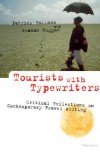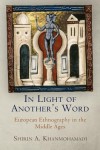To Read Is to Fly
“To read is to fly: it is to soar to a point of vantage which gives a view over wide terrains of history, human variety, ideas, shared experience and the fruits of many inquiries.”
― Alberto Manguel
You can also find me on Goodreads and LibraryThing.
![Ulysses Annotated: Notes for James Joyce's Ulysses [Revised and Expanded Edition] - 'James Joyce', 'Robert J. Seidman'](http://booklikes.com/photo/max/200/300/upload/books/35/61/854c5022c3def51f71028e546cf3dab8.jpg) I've just finished my first read of Ulysses, and it was a transcendent experience. I took two months, took my time, looked forward to my weekly (sometimes biweekly) visits in Joyce's Dublin.
I've just finished my first read of Ulysses, and it was a transcendent experience. I took two months, took my time, looked forward to my weekly (sometimes biweekly) visits in Joyce's Dublin.I am not yet ready to write a review of Ulysses - I want to let the experience wash over me a bit longer before I try to capture it in words. But I do want to say a few words about the reference texts I used: Ulysses Annotated and The New Bloomsday Book: A Guide Through Ulysses (which I will discuss in a separate review).
Gifford's Ulysses Annotated is a breathtakingly comprehensive, encyclopedic approach to referencing Ulysses, often word by word and line by line. Gifford covers historical, mythological, and religious references and context; discusses cultural movements in Ireland; provides definitions for slang and lyrics from popular songs; and even combs through directories, maps, and other archival records to explain when Joyce was drawing directly from actual people, places, and events in Dublin.
As a historian, I loved having access to this volume as I was reading Ulysses. It helped me to resurrect my knowledge of Irish history. I had fun brushing up on early-20th-century Irish slang (you never know when it could come in handy). And I even had an (unanticipated) opportunity to learn more about Theosophism.
That being said, I was wary of having Gifford's exhaustive research displace my attention from Joyce's incandescent, humorous, exuberant use of language. To avoid this, I did not read the annotations side by side Ulysses's text. Instead, I would read an episode of Ulysses, sometimes re-read it, and then page through the relevant annotations for that episode. The process was reminiscent of reading encyclopedias, or paging happily through the OED. (I know, very geeky....)
So, if you are a first-time reader, I don't think you should feel it necessary to read Gifford too. You will understand and appreciate Ulysses more on your own terms, with some guidance from The New Bloomsday Book: A Guide Through Ulysses. If you need to understand the significance of every word you read, try to let go of that when you read Ulysses, and let the language wash over you.
If you are about to re-read Ulysses, or if you share my love of historical references and context, then I recommend Gifford very highly - just don't let your perusal of it direct your attention away from what is really important - Joyce's writing itself.
Currently reading
The Upstairs Wife: An Intimate History of Pakistan
About Women: Conversations Between a Writer and a Painter
The Relic Master: A Novel
Limonov
Tourists with Typewriters: Critical Reflections on Contemporary Travel Writing
Inventing Exoticism: Geography, Globalism, and Europe's Early Modern World (Material Texts)
Among the Ruins: Syria Past and Present
Midnight at the Pera Palace: The Birth of Modern Istanbul
In Light of Another's Word: European Ethnography in the Middle Ages
Intimate Outsiders: The Harem in Ottoman and Orientalist Art and Travel Literature












